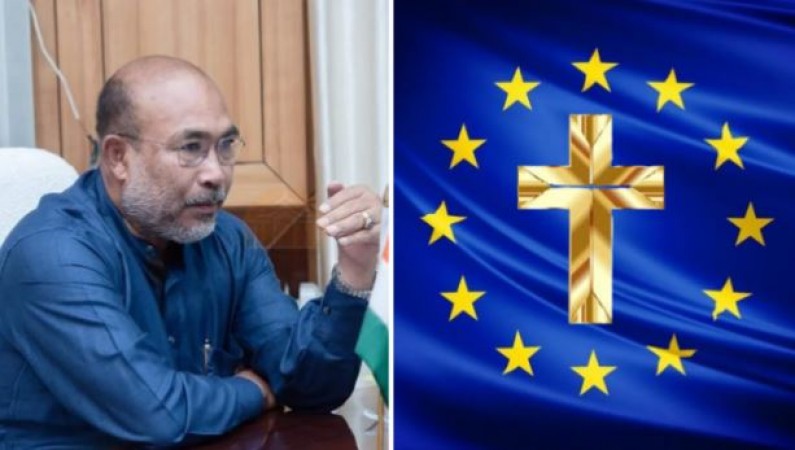
Manipur: The European Union's pledge of €250,000 (approximately 22.6 million Indian rupees) for the hailstorm and heavy rain-affected state of Manipur has been declined by the state government, which has termed the news as "false and untrue."
The aid, facilitated through EU humanitarian partner ADRA (Adventist Development and Relief Agency), was intended to benefit 1500 vulnerable families in Manipur. However, the state government has asserted that all financial requirements for storm relief are being met from the National Disaster Response Fund and the State Disaster Response Fund. In a press release, the chief secretary of Manipur clarified, "A news report has been circulating in the media and on different social network platforms about the EU providing €250,000 to assist victims of a severe storm in Manipur. This is totally false and untrue, and as far as the State Government is concerned, all financial requirements in connection with the recent storm are being met from the available funds."
The state government emphasized that it is actively engaged in relief efforts, collaborating with Deputy Commissioners, security personnel, and volunteers. A sum of Rs. 30 crore has already been sanctioned by the State Government to the concerned districts for relief work. ADRA, described as the humanitarian arm of the Seventh-day Adventist Church, operates globally, providing relief and development assistance in over 107 countries, including India. ADRA India focuses on healthcare, education, livelihood generation, humanitarian and emergency response, and the protection of vulnerable groups.
The Seventh-day Adventist Church, however, has faced controversies in recent times. Allegations of misappropriation, offensive remarks, sexual abuse, and financial irregularities have been raised against its administration. Members of the Southeast India Union of Seventh-day Adventists have protested against the church's practices, including alleged embezzlement and deception.
Moreover, the EU Parliament's intervention in Manipur has been previously rejected by the Indian government. Following the EU Parliament's discussion on developments in Manipur and the adoption of an 'Urgency Resolution,' the Ministry of External Affairs criticized the interference, terming it "unacceptable" and reflective of a "colonial mindset."
The conflict in Manipur, particularly between the Meiteis and Kukis, has deep-rooted ethnoreligious dimensions. Meiteis, the majority community, are predominantly Hindu, while Kukis, mostly Christians, reside in tribal areas. The conflict has been exacerbated by land disputes, with Meiteis claiming limited land ownership, and Kukis asserting their tribal identity. The recent unrest in Manipur highlights the complex interplay of religious, ethnic, and political dynamics in the region, requiring careful attention and resolution.
Nitin Gadkari: BJP Achieved in 10 Years What Congress Couldn't in 60 Years
Major Radhika Sen Awarded UN Military Gender Advocate of the Year 2023
Delhi Court Extends Judicial Custody of Manish Sisodia in Excise Policy Scam Case